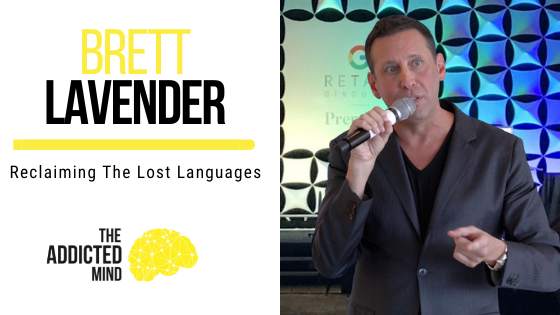We’re in the worst phase of human history where people are so stressed out, so afraid of judgment, and tentative as it relates to saying anything these days because of this “cancel culture” society.
We have lost an enormous amount of substance and the ability to effectively communicate our thoughts and emotions verbally, vocally, and physically because we’re afraid of the ramifications.
Keynote speaker and performance coach Brett Lavender believes that if we can just get back to our basics and start talking to each other as humans, we’re going to be in a much better situation.
Brett is the Founder and CEO of Persuasive Lion, a speaking, training, and coaching practice based on The Lost Languages program that teaches people valuable techniques of persuasive verbal & non-verbal communication to help people lead better and exceed their personal and professional goals.
The Difference Between Persuasion and Manipulation
There’s a very fine line between persuasion and manipulation. They are very closely related behaviors. However, the intention is different.
When using persuasion as a craft, you’re saying and doing things to intentionally shift a person’s behavior or reactions to things in their best interests, or in your mutual best interests.
But when you’re using the art of manipulation, you’re doing the same thing, but the intention is just for your own personal best interest.
The Concept of the Lost Languages
As humans, we are lost in terms of communication, which has been happening since way before COVID and since the onset of technology that has allowed us to hide behind the screen.
We think we’re the same because we’re humans and because we speak the same language, at least in America. And so, we assume that we’re just going to understand each other.
The only interaction that different species of life have in the natural world is to kill or be killed. Yet we’re living in a very unnatural melting pot of all different species of humans, forced to communicate with one another. And the only thread that runs through all of us that’s the same is instinct.
Speaking on a Downturn vs. Upturn
The downturn is said in a way to exemplify a statement or request or demand; whereas the upturn is positioned as a question.
In our work society, we have been conditioned to speak on the upturn, which does not create the same reaction as the downturn. A position of authority makes a statement or request using that downturn. But a lot of people speak on the upturn because they’re uncomfortable. And if you practice this, and just pay attention to it, it’s game-changing.
If you want to learn more about how you can reclaim the lost languages and communicate more effectively, check out Episode 172: Reclaiming The Lost Languages with Brett Lavender, The Persuasive Lion.

